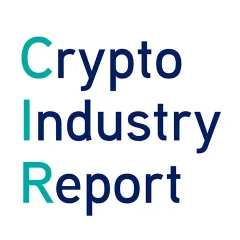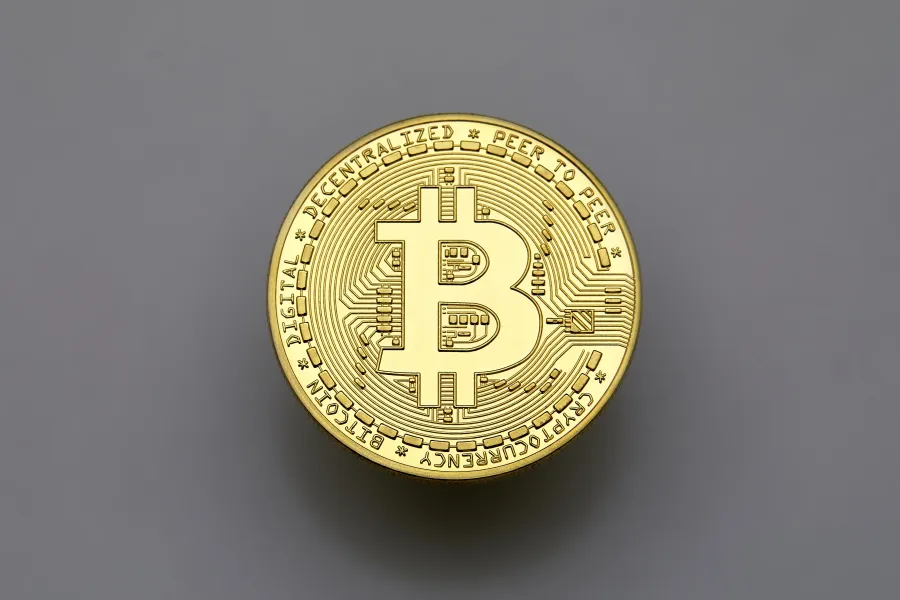A dose of comical things happening in crypto lately…
This week, our blockchain experts assessed the following topics:
- A dose of comical things happening in crypto lately…
- DeFi can disrupt the world's largest financial market: Forex
- The real-world asset revolution is underway already
- Regulation: Here’s what’s in store for 2023
Our bi-weekly Crypto Industry Report provides you with valuable information on the global crypto industry – picked and analysed by our blockchain experts.
A dose of comical things happening in crypto lately…
Bankruptcies have become commonplace in crypto, and it almost feels like the industry and community have gotten used to it. The latest company to yield to this legal process is crypto lending firm Genesis Global Holdco, LLC. The company announced it had filed for bankruptcy through a statement dated January 19, 2023. In the statement, Genesis Global revealed that it had “filed voluntary petitions under Chapter 11 of the U.S. Bankruptcy Code” together with two of its lending subsidiaries, Genesis Asia Pacific Pte. Ltd. and Genesis Global Capital, LLC.
Genesis owes about $3.5 billion to 50 creditors including Gemini, crypto company MoonAlpha Finance, crypto fund Mirana, crypto trading company Cumberland, and VanEck’s New Finance Income Fund. Gemini’s co-founder Cameron Winklevoss described the Genesis bankruptcy filing as good news. According to Cameron, Gemini was preparing to take legal action against the owner of Genesis, Digital Currency Group (DCG), and its CEO, Barry Silbert for the harm caused to over 300,000 Gemini Earn users. Gemini and Genesis Capital were partners in the now-defunct Gemini Earn program, a platform offered by the Gemini exchange that allows users to earn interest on their crypto assets. The SEC is charging both Gemini and Genesis for selling unregistered securities through the Gemini Earn program.
The bankruptcy filing will usher in a restructuring process that aims to make whole creditors of Genesis Global Holdco, LLC. Based on the statement, Genesis will use the more than $150 million it has in hand to fund business operations and the restructuring process.
Furthermore, the trouble at DCG has attracted interest from the Chinese, who want to buy CoinDesk, one of its subsidiaries. The founder of Marsbit, a Chinese crypto news outlet, said, he's willing to work with other companies in the purchase of CoinDesk. “I believe in the future of the crypto industry, and I'm willing to do infrastructure services in a down-to-earth manner, no matter if it's trading or media,” tweeted Wang Feng.
With so many things going awry in the crypto space, the community has been anticipating more crypto regulations and intense crackdowns from US regulators. That is why the DoJ announcement this past week was highly feared but turned out to be overhyped. The DoJ had teased taking a major international crypto enforcement action, and many expected it to go after Binance. However, DoJ went after Hong-Kong based crypto exchange Bitzlato, a smaller and lesser-known exchange than Binance. The DoJ and the Treasury Department have charged the exchange with money laundering and arrested its Russian founder, Anatoly Legkodymov. DoJ’s complaint against Bitzlato and its founder notes that the Hydra darknet marketplace was the exchange’s largest counterparty for crypto transactions. According to the Treasury Department’s Financial Crimes Enforcement Network (FinCEN), Bitzlato played a key role in facilitating illegal transactions for ransomware perpetrators in Russia.
Although the DoJ didn’t go after Binance, the exchange was in the news anyway because its fiat banking partner, Signature Bank, has said it will no longer facilitate SWIFT transactions below $100,000 as of February 1, 2023. Signature Bank only serves 0.01% of Binance’s monthly customers. While this percentage is small, it highlights just how much of a bottleneck fiat banks are to crypto companies, something pointed out in our last report.
Going back to the company that triggered problems at Genesis, the new FTX CEO, John Ray, says the bankrupt exchange may soon restart operations. In an interview with WSJ, Ray stated that he had started a task force that will look into reviving the main international crypto exchange, FTX.com. Following this announcement, the FTX token, FTT, surged by almost 30%.
Interestingly, the founders of Three Arrows Capital (3AC), the infamous crypto hedge fund that went bankrupt last year, are planning to start a crypto exchange called GTX. Kyle Davies and Zhu Su are, therefore, on a mission to raise $25 million for this new venture. GTX has plans to focus its business on crypto claims, where investors that have money stuck in bankrupt crypto companies like FTX can sell their claims to Wall Street instead of waiting for lengthy legal processes to make them whole.
DeFi can disrupt the world's largest financial market: Forex
A recent research paper by Circle and Uniswap titled “On-chain foreign exchange and cross-border payments” has revealed that decentralised finance (DeFi) could reduce the cost of remittances by 80%. This could help people save $30 billion a year.
The researchers examined the trading activity of Circle’s stablecoins USD Coin (USDC) and Euro Coin (EUROC) on decentralised exchange, Uniswap. They discovered that the on-chain exchange of the USDC/EUROC pair recorded daily volumes as high as $8.6 million over six months since July 2022.
Furthermore, the authors of the paper, learned that on-chain foreign exchange and settlements can remove the settlement risks that traditional FX exchange markets face because blockchain technology enables payment versus payment transactions. DeFi can also solve other problems in the traditional FX exchange markets like market manipulation and benchmark rigging thanks to the transparency of the blockchain.
“The advantages of DeFi for foreign exchange transactions are numerous, including faster, cheaper, and more efficient value exchange and transfer,” the paper says.
The Real-world asset revolution is underway already
Forex is just one of the many real-world sectors that DeFi will disrupt. The tokenisation of real-world assets (RWAs) is another. RWAs are tangible assets such as real estate, salaries, invoices, consumer goods, cash, stocks, bonds, royalties, precious metals, and corporate debt that can be used as collateral in DeFi. They promote under-collateralised lending outside the crypto space. That means that traditional companies can secure loans on DeFi protocols using their stocks and other RWAs as collateral.
RWAs in DeFi aren’t yet popular, but several lending protocols are already spearheading the revolution. They include TrueFi, Goldfinch, Centrifuge, and Maple Finance. These RWA lending DeFi platforms were among the top ten protocols based on “180-day (August 1 to January 16) cumulative interest fees paid to users.” MakerDAO is also generating more than 50% of its revenue from RWAs.
Real-world assets have the potential to drive the growth of DeFi into a trillion-dollar market. The US exchange Coinbase is also bullish on RWAs. According to its 2023 crypto market outlook, the company forecasts that institutional entities will use permissioned DeFi platforms and propel innovation in the tokenisation of RWAs. Coinbase also noted a project where SBI Digital Asset Holdings, JPMorgan Chase, and DBS Bank traded sovereign bonds and tokenised currencies on Polygon in November 2022. And there is also support for RWA from Ethereum’s highest circles: Vitalik Buterin has called for more projects to integrate RWAs into DeFi and stablecoins.
“The formula behind stablecoins can in principle be replicated to other real-world assets. Interesting natural candidates include major stock indices and real estate,” he said. Buterin predicts that stablecoins backed by RWAs could become a popular monetary product in the crypto world.
Regulation: Here’s what’s in store for 2023
The collapse of the crypto exchange FTX late last year and the ripple effects that continue to rock the crypto space has caught the attention of regulators. Thus, experts predict 2023 could be the year they take major actions. Crypto is now among the top topics getting immediate attention from the Senate Banking Committee and House Financial Services Committee in the United States. Moreover, the IMF has yet again highlighted the need for the formulation of global standards to regulate crypto.
“Many of these concerns can be addressed by strengthening financial regulation and supervision, and by developing global standards that can be implemented consistently by national regulatory authorities,” IMF wrote on a blog.
While regulatory action has intensified, many questions remain unanswered. For instance, it is still unclear which crypto assets fall under securities and which are commodities. Despite this lack of clarity, the SEC went ahead and charged Avraham Eisenberg for stealing $116 million after attacking the decentralised exchange Mango Markets. The SEC said Eisenberg manipulated the platform’s token MNGO, which it considers a security. The DoJ and the Commodity Futures Trading Commission (CFTC) have also pressed charges against Eisenberg.
The failure of FTX has also put CFTC under pressure to prove that it can hold into account crypto companies that are in the wrong and that it is not under the control of influential people in the crypto industry. This is because former FTX CEO Sam Bankman-Fried was one of the champions of the Digital Commodities Consumer Protection Act (DCCPA), a bill that would put the CFTC and not the SEC in charge of cryptocurrencies. This bill has since been put on hold.
According to a prediction article on CoinDesk, there will be more litigation in 2023 as regulators seek to prevent further harm to crypto investors. Also, new crypto laws are likely to emerge.
Share post

Auch interessant

To be continued: SEC pushes back at Coinbase
SEC pushes back against Coinbase's claim of no regulatory jurisdiction, stating the crypto exchange knowingly violated securities laws. Meanwhile, Gemini, owned by the Winklevoss twins, files a lawsuit against Digital Currency Group and CEO Barry Silbert alleging fraud and deception following the collapse of a lending venture. The Bank for International Settlements survey reveals that 93% of central banks are working on Central Bank Digital Currencies (CBDCs) which are seen as potential geopolitical policy tools and a challenge to the dollar's dominance. The race for a Bitcoin ETF intensifies, with BlackRock refiling its application featuring Coinbase as the market surveillance partner, as the Grayscale Bitcoin Trust's discount to net asset value narrows, potentially indicating the transformation into a proper ETF.

BlackRock fever: The ETF filing spree and institutional appetite
BlackRock filed for a Bitcoin ETF with the SEC, inspiring similar applications from firms like WisdomTree, Invesco, and Fidelity, and boosting Bitcoin's value. Traditional finance institutions such as Fidelity and Nasdaq are showing increased interest in crypto, with moves towards exchange and custody services. The defunct crypto exchange FTX, under new CEO John Ray III, is planning a potential revival after recovering significant assets. Meanwhile, the IMF is developing a global CBDC platform for cross-border transactions and DAI, a major stablecoin, is diversifying its backing from USDC to include real-world assets.

SWIFT explores blockchain interoperability
SWIFT has partnered with Chainlink to experiment with leveraging its infrastructure for transferring tokenized value across blockchain networks. The trials will address interoperability, regulatory challenges, and operational drawbacks for financial institutions in a blockchain environment. Chainlink will provide connectivity between private and public blockchains. SWIFT's findings will be published later this year.

China wants an Internet 3.0, while Hong Kong gears up for crypto trading launch
China is striving for advancement in Internet 3.0 technologies, with Beijing's white paper outlining plans to invest in the development of the metaverse and Web3 tech such as non-fungible tokens, but not cryptocurrencies due to the country's previous ban. Meanwhile, Hong Kong is launching its new crypto trading regulations, allowing retail investors to participate from June 1, 2023, with exchanges like Huobi Hong Kong beginning to offer spot trading to retail and institutional clients. Furthermore, the Cybersecurity and Technology Crime Bureau of the Hong Kong Police Force is launching a metaverse platform, 'CyberDefender', to educate the public about potential threats and crime prevention in the metaverse.

BRC-20: Innovating on Bitcoin is the new cool
A new Bitcoin “token standard” called BRC-20 is the hottest thing right now in the crypto space. It was introduced in March 2023 by a pseudonymous person called Domo. Bitcoin Request for Comment 20 (BRC-20) is an experiment that brings fungible tokens to the Bitcoin blockchain using the Ordinals protocol. Ordinals rely on ordinal theory, enabling the identification and tracking of individual satoshis within Bitcoin's existing supply, while also allowing them to be inscribed (associated) with data. Through this technique, satoshis (sats) are given ordinal numbers starting with zero. Anyone can add a script file to a sat to create and transfer a BRC-20 token on the Bitcoin blockchain. BRC-20 tokens are created using three functions: deploy, mint, and transfer.

US versus EU: Giants fighting for regulatory clarity
It is official now: The European Parliament voted overwhelmingly in favour of Markets in Crypto Assets (MiCA), legislation that will guide the crypto sector in all 27 European Union member states. 517 parliament members voted for it, while 38 voted against it. This approval makes Europe the first continent with comprehensive rules for cryptocurrencies. Also, it means that all EU member states will have unified crypto regulations. So, if a crypto business is approved in one EU member country, it could easily expand operations to another member state. The EU’s milestone was lauded by Binance as well as Kraken and Coinbase.

Ethereum: Another milestone reached with the Shanghai Update
On April 12, 2023, Ethereum successfully executed the planned Shanghai update also known as Shapella. The upgrade allows validators to unstake their staked ETH and withdraw their rewards, as well as staked ether if chosen. Now that another level of uncertainty has waned for the biggest smart contract blockchain, this new feature could attract more investors to stake their ether.

CFTC versus Binance:
Clash of the titans
The world’s leading crypto exchange by volume, Binance, alongside its CEO, Changpeng Zhao, and ex-Chief Compliance Officer, Samuel Lim, are being sued by the US Commodity Futures Trading Commission (CFTC).

Stablecoin USDC briefly lost its
peg. What do we learn from this?
One of the top stablecoins by market cap, USD Coin (USDC), de-pegged briefly from the US dollar on March 11 following the collapse of Silicon Valley Bank (SVB). Circle, the stablecoin’s issuer, held $3.3 billion in USDC reserves with the bank, which caused panic as investors rushed to withdraw their funds, assuming USDC could implode because of insufficient backing. However, the amount represented less than 8% of the stablecoin’s reserves.

Ethereum Shanghai upgrade pushed to April: Will there be too much selling pressure?
Ethereum stakers have been eagerly awaiting the Shanghai upgrade, which will enable them to withdraw their staked ether. Stakers’ funds have been locked since Ethereum introduced the proof-of-stake Beacon Chain in December 2020. The upgrade was originally slated to take place sometime in March but was pushed by about two weeks to April during a recent execution layer meeting.